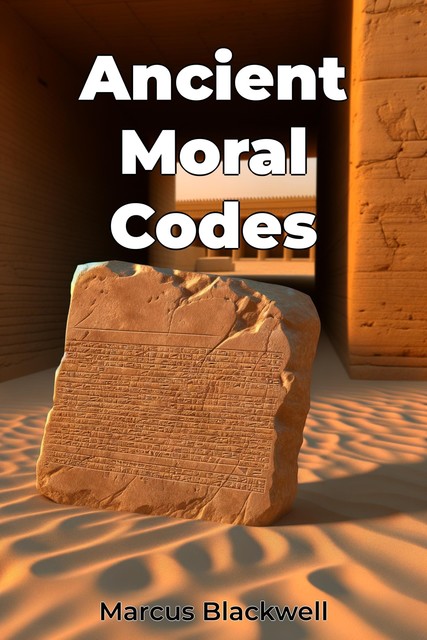A Bookmate-webhelyen és ajánlásaink javítása érdekében sütiket használunk.
További információért olvassa el a sütikre vonatkozó irányelveinket.
További információért olvassa el a sütikre vonatkozó irányelveinket.
Minden sütit elfogad
Cookie Beállítások
Marcus Blackwell
Ancient Moral Codes
Benyomás
Hozzáadás polchoz
Már olvasott
Könyvben lévő hiba jelentése
Megosztás
Facebook
Twitter
Hivatkozás másolása
“Ancient Moral Codes” offers a fascinating exploration of how early civilizations developed ethical frameworks that continue to shape our modern moral understanding. This comprehensive analysis spans from 3000 BCE to 500 CE, examining the intricate moral systems developed across Mesopotamia, Egypt, Greece, India, and China.
Through careful examination of archaeological evidence and preserved texts, the book reveals how these ancient societies established fundamental concepts of justice, fairness, and social responsibility that remain surprisingly relevant in today's world. The book's journey through ancient ethical systems unveils three crucial themes: universal patterns in moral development, the influence of religious and secular authorities in establishing ethical codes, and the transmission of moral principles through cultural exchange.
By examining iconic examples like the Code of Hammurabi alongside lesser-known moral frameworks, readers discover how geographic, economic, and social factors shaped these ethical systems while maintaining certain universal principles. What makes this work particularly valuable is its ability to connect ancient wisdom with contemporary challenges, demonstrating how ancient moral codes continue to influence modern policy-making and ethical debates.
Moving chronologically and geographically, the book combines archaeological findings, linguistic analysis, and comparative historical studies to present a clear picture of moral development across civilizations. Its interdisciplinary approach makes complex philosophical concepts accessible while maintaining scholarly rigor, offering valuable insights for both academics and general readers interested in understanding the historical roots of modern moral thinking. The work effectively bridges the gap between ancient wisdom and contemporary ethical challenges, providing a unique perspective on how early moral codes continue to resonate in today's global society.
Through careful examination of archaeological evidence and preserved texts, the book reveals how these ancient societies established fundamental concepts of justice, fairness, and social responsibility that remain surprisingly relevant in today's world. The book's journey through ancient ethical systems unveils three crucial themes: universal patterns in moral development, the influence of religious and secular authorities in establishing ethical codes, and the transmission of moral principles through cultural exchange.
By examining iconic examples like the Code of Hammurabi alongside lesser-known moral frameworks, readers discover how geographic, economic, and social factors shaped these ethical systems while maintaining certain universal principles. What makes this work particularly valuable is its ability to connect ancient wisdom with contemporary challenges, demonstrating how ancient moral codes continue to influence modern policy-making and ethical debates.
Moving chronologically and geographically, the book combines archaeological findings, linguistic analysis, and comparative historical studies to present a clear picture of moral development across civilizations. Its interdisciplinary approach makes complex philosophical concepts accessible while maintaining scholarly rigor, offering valuable insights for both academics and general readers interested in understanding the historical roots of modern moral thinking. The work effectively bridges the gap between ancient wisdom and contemporary ethical challenges, providing a unique perspective on how early moral codes continue to resonate in today's global society.
több
73 nyomtatott oldalak
Már olvasta? Mit gondol róla?
👍👎
fb2epub
Húzza és ejtse ide a fájljait
(egyszerre maximum 5-öt)


